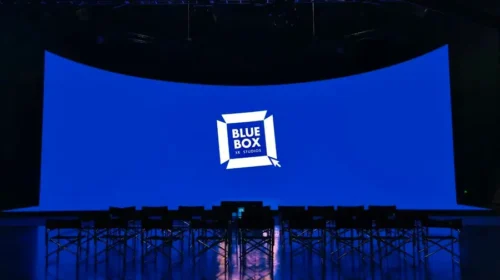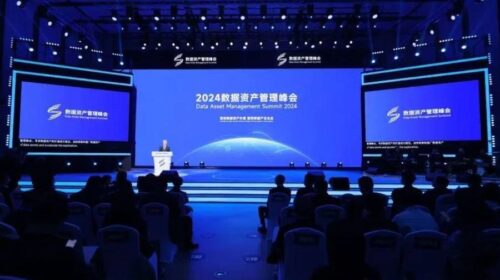Agora hops on the China tech breakup bandwagon

The provider of real-time engagement services will split into two units, one focused on China and the other on its international business
Key Takeaways:
- Agora said it will split into two pieces, one for China and the other for its global customers, to take into account the “unique” needs of each market
- The company posted its fifth straight quarter of revenue contraction in the first three months of the year, the result of lingering fallout from China’s education crackdown of 2021
By Doug Young
The year 2023 is rapidly becoming the “Year of the Breakup” for Chinese tech companies, with Agora Inc. (API.US) becoming the latest to join the trend. The provider of real-time engagement services announced it has split itself into two parts, one focused on China and the other on its non-China operations.
The breakup looks similar to one that attracted far bigger headlines in March, when e-commerce giant Alibaba (BABA.US; 9988.HK) announced a plan to split itself into six pieces. Several other companies are moving in similar directions, including autonomous driving technology company TuSimple (TSP.US) and wearable device maker Zepp (ZEPP.US).
A number of factors are driving the trend, including a desire to operate more efficiently, which is one of the main catalysts for Alibaba. For smaller companies like Agora, the decision also has a geopolitical element, recognizing that China is relatively unique for tech companies due to its higher degree of regulatory oversight compared with other global markets. Growing concerns about data security are also driving the trend, leading companies like Agora to clearly define their individual markets and build ring fences around the data it handles in each of those areas.
Agora briefly made global headlines two years ago when media reported it was one of the main technology partners behind social media sensation Clubhouse’s audio chatroom service. But the company quickly came under fire after people discovered that some of the Clubhouse-related data was being routed through Agora’s China-based servers.
The kind of breakup Agora has just revealed would probably address this kind of issue by making sure data from its international division remained outside of China, ideally housed on servers in the same country where each Agora customer was based.
The company’s new international business will retain the Agora name, while the China-based business will take its Chinese name, Shengwang, Agora said in announcing the move earlier this week together with its latest quarterly earnings. The current U.S.-listed Agora would then become a holding company for the two units, which would each operate independently with their own separate management teams. The international division would be based in the Silicon Valley in California, while the Chinese division would be based in Shanghai.
“We believe that this strategic reorganization will allow us to optimally focus our resources on the priorities of each business – driving growth for the Agora business and competing more effectively for the Shengwang business – while taking into consideration the unique economic and product needs of customers in each market,” said Agora founder and Chairman Tony Zhao, who has a rich history working with real-time engagement technology both in Silicon Valley and in China.
Zhao was a founding engineer at Webex, which was later acquired by Cisco (CSCO.US). He was also previously CTO of Nasdaq-listed Chinese social networking and online karaoke site Joyy Inc. (YY.US), formerly known as YY, which like Webex, developed technology enabling real-time video and voice engagement.
Divorce ahead?
Agora didn’t provide any details on whether the newly announced split could ultimately turn into a full-fledged divorce down the road, which would sever all ties between the pair by giving each its own separate listing. But we wouldn’t be surprised if this ultimately happened, since such a move would greatly reduce the data security risks we previously mentioned.
For now, at least, the company has started reporting separate operating metrics for the two main divisions, giving investors a better idea of how each is doing and what different issues they face.
The nine-year-old company was growing rapidly around the time of its June 2020 IPO, though it has yet to earn a profit for any of its previously reported years. But its growth hit a major speedbump last year when one of its key customer groups – providers of K-12 tutoring services in China – was banned by Beijing from providing such services in 2021. As a result, Agora’s revenue began contracting in the first quarter of last year, and has been declining ever since.
That trend continued in this year’s first quarter, with Agora’s overall revenue down 5.6% to $36.4 million for the period, according to its latest report. The declines look set to continue into the second quarter as well. The company forecast its revenue would total between $34 million and $37 million in the three months through June, whose midpoint would represent a 13% decline from the $41 million it reported a year earlier.
The breakdown between the two new independent units shows that China still accounts for the bigger part of Agora’s overall business. But the international portion is rapidly gaining share as it continues to grow, while the China business is still reeling from the loss of the K-12 education business.
Revenue for the Shengwan China business fell 14.5% year-on-year in the first quarter to $21.3 million, accounting for nearly 60% of the total. The international Agora unit’s revenue rose 10.2% to $15.1 million, though we should also point out the latest figure was down about 4.4% from the previous quarter. The company did a good job controlling costs, with its operating expenses down 25.5% from a year ago. As a result, its non-GAAP loss, which excludes items like stock-based compensation, narrowed to $9.1 million from a $16.9 million loss a year earlier.
The company still has plenty of cash, with $416 million in its coffers at the end of March, meaning it’s unlikely to face a cash crunch anytime soon. More importantly, Agora really needs to return to growth in China and also post some stronger growth internationally if it wants to regain investor favor. Zhao dangled artificial intelligence (AI) as a possible catalyst for that kind of new growth in the not-too-distant figure, pointing out such technology allows humans to experience a wider range of interactions online by offering virtual characters in addition to other humans.
That might sound good in principle, but investors are still not too impressed by the company. Its stock initially fell after the latest earnings report release, though it bounced back the next day. But its latest close of $3.025 is still a fraction of its $20 IPO price. In terms of valuation, the company trades at a quite modest price-to-sales (P/S) ratio of 1.8, which is lower than the 2.1 for the similar Twilio (TWLO.US) but higher than the 0.52 for 8×8 (EGHT.US).
To subscribe to Bamboo Works weekly newsletter, click here






